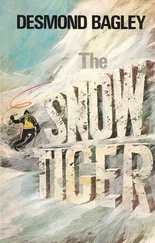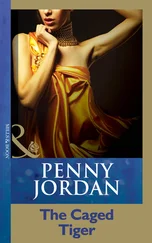The electric buzzer sounded through the parking lot. A voice over the lobby microphone said, "Driver Balram. Please report to the main entrance of Buckingham B Block with the car."
And so it was that I would get into the Honda City, drive up a ramp, and come out to see my first sunlight of the day.
The brothers were dressed in posh suits-they were standing at the door to the building, chatting and chirruping; when they got in, the Mongoose said, "The Congress Party headquarters, Balram. We went there the other day-I hope you remember it and don't get lost again."
I'm not going to let you down today, sir.
Rush hour in Delhi. Cars, scooters, motorbikes, autorickshaws, black taxis, jostling for space on the road. The pollution is so bad that the men on the motorbikes and scooters have a handkerchief wrapped around their faces-each time you stop at a red light, you see a row of men with black glasses and masks on their faces, as if the whole city were out on a bank heist that morning.
There was a good reason for the face masks; they say the air is so bad in Delhi that it takes ten years out of a man's life. Of course, those in the cars don't have to breathe the outside air-it is just nice, cool, clean, air-conditioned air for us. With their tinted windows up, the cars of the rich go like dark eggs down the roads of Delhi. Every now and then an egg will crack open-a woman's hand, dazzling with gold bangles, stretches out an open window, flings an empty mineral water bottle onto the road-and then the window goes up, and the egg is resealed.
I was taking my particular dark egg right into the heart of the city. To my left I saw the domes of the President's House-the place where all the important business of the country is done. When the air pollution is really bad, the building is completely blotted out from the road; but today it shone beautifully.
In ten minutes, I was at the headquarters of the Congress Party. Now, this is an easy place to find, because there are always two or three giant cardboard billboards with the face of Sonia Gandhi outside.
I stopped the car, ran out, and opened the door for Mr. Ashok and the Mongoose; as he got out, Mr. Ashok said "We'll be back in half an hour."
This confused me; they never told me in Dhanbad when they'd be back. Of course it meant nothing. They could take two hours to come back, or three. But it was a kind of courtesy that they apparently now had to give me because we were in Delhi.
A group of farmers came to the headquarters, and weren't allowed inside, and shouted something or other, and left. A TV van came to the headquarters and honked; they were let in at once.
I yawned. I punched the little black ogre in its red mouth, and it bobbed back and forth. I turned my head around, from side to side.
I looked at the big poster of Sonia Gandhi. She was holding a hand up in the poster, as if waving to me-I waved back.
I yawned, closed my eyes, and slithered down my seat. With one eye open, I looked at the magnetic sticker of the goddess Kali-who is a very fierce black-skinned goddess, holding a scimitar, and a garland of skulls. I made a note to myself to change that sticker. She looked too much like Granny.
Two hours later, the brothers returned to the car.
"We're going to the President's House, Balram. Up the hill. You know the place?"
"Yes, sir, I've seen it."
Now, I'd already seen most of the famous sights of Delhi -the House of Parliament, the Jantar Mantar, the Qutub-but I'd not yet been to this place-the most important one of all. I drove toward Raisina Hill, and then all the way up the hill, stopping each time a guard put his hand out and checked inside the car, and then stopping right in front of one of the big domed buildings around the President's House.
"Wait in the car, Balram. We'll be back in thirty minutes."
For the first half an hour, I was too frightened to get out of the car. I opened the door-I stepped out-I took a look around. Somewhere inside these domes and towers that were all around me, the big men of this country-the prime minister, the president, top ministers and bureaucrats-were discussing things, and writing them out, and stamping papers. Someone was saying-"There, five hundred million rupees for that dam!"-and someone was saying-"Fine, attack Pakistan, then!"
I wanted to run around shouting: "Balram is here too! Balram is here too!"
I got back into the car to make sure I didn't do anything stupid and get arrested for it.
It was getting dark when the two brothers came out of the building; a fat man walked out with them, and talked to them for a while, outside the car, and then shook their hands and waved goodbye to us.
Mr. Ashok was dark and sullen when he got in. The Mongoose asked me to drive them back home-"without making any mistakes again, understand?"
"Yes, sir."
They sat in silence, which confused me. If I had just gone into the President's House, I'd roll down the windows and shout it aloud to everyone on the road!
"Look at that."
"What?"
"That statue."
I looked out the window to see a large bronze statue of a group of men-this is a well-known statue, which you will no doubt see in Delhi: at the head is Mahatma Gandhi, with his walking stick, and behind him follow the people of India, being led from darkness to light.
The Mongoose squinted at the statue.
"What about it? I've seen it before."
"We're driving past Gandhi, after just having given a bribe to a minister. It's a fucking joke , isn't it."
"You sound like your wife now," the Mongoose said. "I don't like swearing-it's not part of our traditions here."
But Mr. Ashok was too red in the face to keep quiet.
"It is a fucking joke -our political system-and I'll keep saying it as long as I like."
"Things are complicated in India, Ashok. It's not like in America. Please reserve your judgment."
* * *
There was a fierce jam on the road to Gurgaon. Every five minutes the traffic would tremble-we'd move a foot-hope would rise-then the red lights would flash on the cars ahead of me, and we'd be stuck again. Everyone honked. Every now and then, the various horns, each with its own pitch, blended into one continuous wail that sounded like a calf taken from its mother. Fumes filled the air. Wisps of blue exhaust glowed in front of every headlight; the exhaust grew so fat and thick it could not rise or escape, but spread horizontally, sluggish and glossy, making a kind of fog around us. Matches were continually being struck-the drivers of autorickshaws lit cigarettes, adding tobacco pollution to petrol pollution.
A man driving a buffalo cart had stopped in front of us; a pile of empty car engine oil cans fifteen feet high had been tied by rope to his cart. His poor water buffalo! To carry all that load-while sucking in this air!
The autorickshaw driver next to me began to cough violently-he turned to the side and spat, three times in a row. Some of the spit flecked the side of the Honda City. I glared-I raised my fist. He cringed, and namasted me in apology.
"It's like we're in a concert of spitting!" Mr. Ashok said, looking at the autorickshaw driver.
Well, if you were out there breathing that acid air, you'd be spitting like him too, I thought.
The cars moved again-we gained three feet-then the red lights flashed and everything stopped again.
"In Beijing apparently they've got a dozen ring roads. Here we have one. No wonder we keep getting jams. Nothing is planned. How will we ever catch up with the Chinese?"
(By the way, Mr. Jiabao-a dozen ring roads? Wow.)
Dim streetlights were glowing down onto the pavement on either side of the traffic; and in that orange-hued half-light, I could see multitudes of small, thin, grimy people squatting, waiting for a bus to take them somewhere, or with nowhere to go and about to unfurl a mattress and sleep right there. These poor bastards had come from the darkness to Delhi to find some light-but they were still in the darkness. Hundreds of them, there seemed to be, on either side of the traffic, and their life was entirely unaffected by the jam. Were they even aware that there was a jam? We were like two separate cities-inside and outside the dark egg. I knew I was in the right city. But my father, if he were alive, would be sitting on that pavement, cooking some rice gruel for dinner, and getting ready to lie down and sleep under a streetlamp, and I couldn't stop thinking of that and recognizing his features in some beggar out there. So I was in some way out of the car too, even while I was driving it.
Читать дальше












